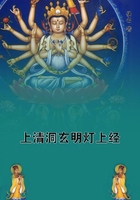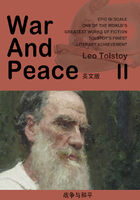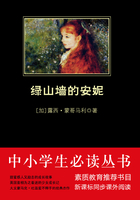Upon these feminine humours the author sheds his Vicar's indulgent smile. What a smile for a self-respecting husband to be pricked to smile! A householder would wince, one would think, at having opportunity to bestow its tolerance upon his cook.
Between these two housewifely appearances, Mrs. Primrose potters through the book; plots--always squalidly; talks the worst kinds of folly; takes the lead, with a loud laugh, in insulting a former friend; crushes her repentant daughter with reproaches that show envy rather than indignation, and kisses that daughter with congratulation upon hearing that she had, unconsciously and unintentionally, contracted a valid marriage (with a rogue); spoils and makes common and unclean everything she touches; has but two really gentle and tender moments all through the story; and sets, once for all, the example in literature of the woman we find thenceforth, in Thackeray, in Douglas Jerrold, in Dickens, and un peu partout.
Hardly less unspiritual, in spite of their conventional romance of youth and beauty, are the daughters of the squalid one. The author, in making them simple, has not abstained from making them cunning.
Their vanities are well enough, but these women are not only vain, they are so envious as to refuse admiration to a sister-in-law--one who is their rival in no way except in so much as she is a contemporary beauty. "Miss Arabella Wilmot," says the pious father and vicar, "was allowed by all (except my two daughters) to be completely pretty."
They have been left by their father in such brutal ignorance as to be instantly deceived into laughing at bad manners in error for humour. They have no pretty or sensitive instincts. "The jests of the rich," says the Vicar, referring to his own young daughters as audience, "are ever successful." Olivia, when the squire played off a dullish joke, "mistook it for humour. She thought him, therefore, a very fine gentleman." The powders and patches for the country church, the ride thither on Blackberry, in so strange a procession, the face-wash, the dreams and omens, are all good gentle comedy; we are completely convinced of the tedium of Mrs. Primrose's dreams, which she told every morning. But there are other points of comedy that ought not to precede an author's appeal to the kind of sentiment about to be touched by the tragic scenes of The Vicar of Wakefield.
In odd sidling ways Goldsmith bethinks himself to give his principal heroine a shadow of the virtues he has not bestowed upon her. When the unhappy Williams, above-mentioned, has been used in vain by Olivia, and the squire has not declared himself, and she is on the point of keeping her word to Williams by marrying him, the Vicar creates a situation out of it all that takes the reader roundly by surprise: "I frequently applauded her resolution in preferring happiness to ostentation." The good Goldsmith! Here is Olivia perfectly frank with her father as to her exceedingly sincere preference for ostentation, and as to her stratagem to try to obtain it at the expense of honour and of neighbour Williams; her mind is as well known to her father as her father's mind is known to Oliver Goldsmith, and as Oliver Goldsmith's, Dr. Primrose's, and Olivia's minds are known to the reader. And in spite of all, your Goldsmith and your Vicar turn you this phrase to your very face. You hardly know which way to look; it is so disconcerting.
Seeing that Olivia (with her chance-recovered virtue) and Sophia may both be expected to grow into the kind of matronhood represented by their mother, it needs all the conditions of fiction to surround the close of their love-affairs with the least semblance of dignity.
Nor, in fact, can it be said that the final winning of Sophia is an incident that errs by too much dignity. The scene is that in which Burchell, revealed as Sir William Thornhill, feigns to offer her in marriage to the good-natured rogue, Jenkinson, fellow prisoner with her father, in order that, on her indignant and distressed refusal, he may surprise her agreeably by crying, "What? Not have him? If that be the case, I think I must have you myself." Even for an avowedly eccentric master of whims, this is playing with forbidden ironies. True, he catches her to his breast with ardour, and calls her "sensible." "Such sense and such heavenly beauty," finally exclaims the happy man. Let us make him a present of the heavenly beauty. It is the only thing not disproved, not dispraised, not disgraced, by a candid study of the Ladies of the Idyll.















